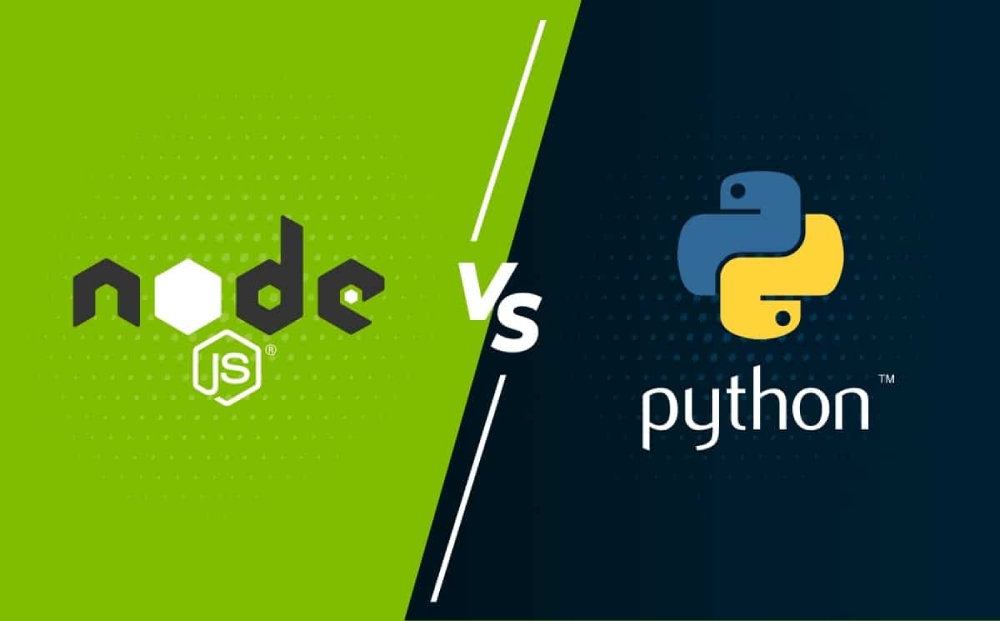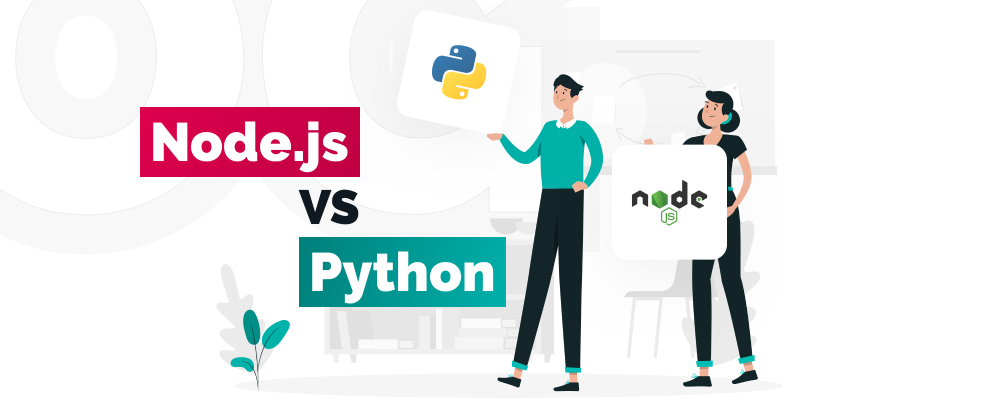
Node.js vs Python for web development in 2025: Key differences explained
Choosing between Node.js and Python for web development is a pivotal decision for developers, startups, and digital teams in 2025. These two backend technologies consistently dominate discussions around scalability, performance, and ecosystem suitability in modern web development.
In this practical guide, PowerGate Software explores the key differences, ideal use cases, and strengths of each to help you make an informed decision tailored to your project’s needs.
|
Quick take: Both Node.js and Python are mature, powerful, and scalable choices for backend web development. The best option depends on your project’s specific requirements.
Note: In complex microservices ecosystems, many organizations adopt a polyglot architecture, strategically combining both technologies. For example, Node.js may handle real-time frontend interactions, while Python powers AI/ML services in the backend. |
1. When to choose Node.js for web development?
Node.js is an open-source, cross-platform JavaScript runtime built on Chrome’s V8 engine. It enables developers to run JavaScript outside the browser, making server-side development possible with a unified JavaScript stack.
Ideal use cases:
- Real-time applications: Chat apps, live dashboards, online collaboration tools, multiplayer games
- Single Page Applications (SPAs) and dashboards: API-centric interfaces served to dynamic frontends
- API-driven development: RESTful or GraphQL endpoints
- Streaming applications: Real-time media streaming platforms
- Microservices: Lightweight, independent services designed for high scalability
- High-concurrency I/O applications: Web apps managing thousands of simultaneous requests
Explore PowerGate’s Expertise: Discover how we deliver scalable, real-time solutions with our Node.js Web Development Services.
2. When to choose Python for web development?
Python is a high-level, interpreted programming language known for its clean, readable syntax and strong versatility. Its simplicity and broad ecosystem make it an ideal choice for rapid development and complex backend tasks.
Ideal use cases:
- Data-driven applications: E-commerce, fintech, and business analytics platforms
- AI/ML-powered applications: Web apps with machine learning at their core
- Scientific and computational backends: Heavy math, simulations, and analytics
- Rapid prototyping (MVPs): Fast development cycles for startups
- Content Management Systems (CMS): Enterprise platforms with rich content structures
- Web scraping and automation tools: Backend utilities that interact with or gather web data
Explore PowerGate’s Expertise: See how our team builds smart, data-centric apps with our Python Web Development Services.
3. More to know: Head-to-head comparison between Node.js vs. Python for web development
To help clarify the distinction between these technologies, here’s a detailed comparison across critical factors:
| Factor | Node.js | Python |
| Speed & performance | High performance for I/O-bound, real-time tasks; powered by the V8 engine and event loop | Slower for concurrency due to GIL; strong performance for CPU-bound tasks with C-optimized libraries |
| Scalability | Excellent for horizontal scaling and microservices | Scales well vertically; horizontal scaling requires careful planning |
| Learning curve | Familiar to JavaScript developers; async complexity may challenge newcomers | Simple, readable syntax; beginner-friendly and ideal for rapid onboarding |
| Ecosystem & libraries | npm provides a rich, unified JS stack with extensive web libraries | Rich in libraries for AI, ML, web, and scientific computing (e.g., NumPy, Django, TensorFlow) |
| Community support | Active, fast-evolving community in the JavaScript ecosystem | Mature and diverse community with strong academic and enterprise support |
| Real-time capabilities | Excellent; built-in support for WebSockets and real-time communication | Possible with additional tools (e.g., Asyncio, third-party Socket.IO bindings) |
| Database support | Strong support for SQL/NoSQL (PostgreSQL, MongoDB, Redis, etc.) | Equally strong database support; ORMs like SQLAlchemy and Django ORM are widely used |
| Security | Security depends on best practices and framework usage; both can be secured effectively | Same as Node.js; secure when adhering to secure coding standards and regular patching |
| Development speed & prototyping | Fast for full-stack apps due to unified language | Outstanding for prototyping with concise syntax and robust standard libraries |

Source: flowygo.com
4. Frequently asked questions
4.1. Is Node.js or Python better for beginners in web development?
Python is typically considered more beginner-friendly due to its intuitive, readable syntax. However, if you’re already proficient in JavaScript, Node.js is a logical and efficient choice.
4.2. Which is better for building APIs?
Both are excellent:
- Node.js (e.g., with Express.js or NestJS) is great for fast, real-time, I/O-intensive APIs.
- Python (e.g., Flask, FastAPI, Django REST Framework) excels in data-intensive or ML-integrated APIs.
4.3. Can Python be used for frontend development?
No. Python is primarily used for backend development. Frontend technologies include JavaScript, HTML, and CSS. Python can render templates (e.g., Jinja2), but it does not execute in the browser.
4.4. Is Node.js faster than Python?
For I/O-heavy, concurrent operations, Node.js is typically faster due to its non-blocking architecture. For CPU-bound tasks, Python can be efficient, especially when using optimized libraries (e.g., NumPy, SciPy).
4.5. Which has better job opportunities: Node.js or Python?
Both offer robust career prospects.
- Python has wider applications in web, AI, data science, and DevOps.
- Node.js is in high demand for real-time, scalable web applications and enterprise platforms.
There is no universal winner in the Node.js vs Python for web development debate. Each technology brings unique strengths to the table:
- Node.js: Ideal for real-time, event-driven apps with high concurrency and microservices.
- Python: Best for data-centric, AI-enabled, or computation-heavy applications with fast development needs.
Ultimately, your decision should be grounded in your project’s specific performance requirements, scalability strategy, development team skillset, and long-term maintainability.
PowerGate Software – Leading Global Product Studio
- Website: https://powergatesoftware.com
- Hotline: +84 24 66542283
- Email: contact@powergatesoftware.com

